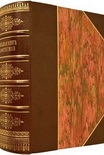Billy Wilder on Assignment, Noah Isenberg [the beginning after the end read novel .TXT] 📗

- Author: Noah Isenberg
Book online «Billy Wilder on Assignment, Noah Isenberg [the beginning after the end read novel .TXT] 📗». Author Noah Isenberg
The big restaurants are even reporting a decline in beer consumption these days, offset by an increase in sparkling water and other carbonated drinks, and of course the sale of milk doesn’t bring in much business. But at the bars, all the cocktails made with tea are selling better than ever.
Profiting the most from the heat are the small and makeshift drink stands and the train station restaurants. People quench their thirst when they get the chance; they don’t arrange for it the way they do for a meal. Ice cream parlors and ice cream carts are showing the relatively highest sales increase. On Sundays, large snack bars geared to tourists have sold between four thousand and five thousand portions of ice cream, and small vending trucks up to five times the usual sales volume; they constantly need to restock their supplies. And all dining cars are sure to report as they reach their destination: “Drinks sold out.”
But one day the unthinkable will come to pass once again: people will walk through the streets shivering, a winter breeze will rock back and forth a forgotten Iced Coffee sign at a shop door, and they will burrow their hands deeper into their pockets at the very sight of this sign.
B. Z. [Berliner Zeitung], July 18, 1928
Here We Are at Film Studio 1929
As is well known, the theater impresario Dr. Moriz Seeler has set up a film studio. At the beginning there was widespread enthusiasm, then disapproval came from the other side. Over on Friedrichstrasse, home of the banks and the moneymen, they were dying of laughter and placing their fingers on their carotid arteries while declaring: “If we find a sponsor for their project, we will stick an umbrella right in here!” Well, we have started, have happily received the money, and have been filming our crazy thing for ten days.
We get to work at a feverish pace. With a wobbly cart borrowed from a baker in Nikolassee, we drag the equipment across the sandy beach. Spend fourteen hours at the camera and tackle everything nicely. We hold the reflectors ourselves, kneel in the lake the whole day, and when we’re on the verge of sunstroke, we just stick our heads in the water. I don’t think the Chang or Pamir expeditions required more willpower and more deprivations. My God, we have such primitive resources on hand. A few miles down the road, on the premises of Neubabelsberg, they may at this very moment be tearing apart the monumental sets for Nina Petrovna’s “wonderful lies” [i.e., Die wunderbare Lüge der Nina Petrovna (The Wonderful Lies of Nina Petrovna, 1929)] while we are busy shooting a few truths we consider important, for a laughably small sum of money.
In seeking the title, we spent a long time wavering between Summer of ’29 and Young People Like Us. To resolve this dilemma, we opted for That’s Exactly How Things Are, because the title clearly states that what we’re aiming for is less contrived and less busy, with less drama and less paper! The basis for the script is a reportage. In the course of one Saturday and one Sunday we followed five randomly selected young people and had a look at how they spent their weekend. The result was this film. A very, very simple story, quiet yet abounding in melodies that our ears pick up on every day. No stunts, no clever punch lines, even running the risk of having “not the foggiest notion of the laws of drama.” The five people in this film, that’s you and me. May God punish us, but our waiter is a good boy who lives in Neukölln and gambles away his 10 percent in cards; he is not like that former tsarist lieutenant, Smirnoff by name, who was impoverished by the course of events and also saved Anastasia’s life. May God punish us, but our heroine types on a typewriter and does not have a pink divan on which she can coax the Przemisl fortification plans from the generals, deceptively masked spy that she actually is. Oh, yes, we lack a strong storyline, a tangible conflict, and God knows what else. Let’s hope so. We skirted all the beaten paths for miles, on a narrow and utterly unused, terribly isolated route; the sign indicating the direction said “LIFE.”
Rochus Gliese, who worked with Friedrich Wilhelm Murnau for many years, directed the film. Moriz Seeler, the eternal seeker and experimenter, kept all the pieces together. Robert Siodmak and Edgar Ulmer, two new names in Berlin, oversaw the camera work with Schüfftan, the cameraman; thank God they come neither from industry nor from literature. The five actors aren’t actors either. For this documentary, we put together a cast of people from the same class, the same profession. Indeed, one character even plays himself. Plays? You have to have seen how the five young people move, how they look into the lens, how they blow their noses, and how they laugh: we wouldn’t trade them for a dream cast …
Another four weeks. Without a studio or the funds available to the big studios, but with an idea that we deem worthwhile. At the end of the film we have a very short scene that may highlight everything most clearly: our fellows are standing in front of a movie theater in the suburbs after the Saturday and after the Sunday screenings by





Comments (0)